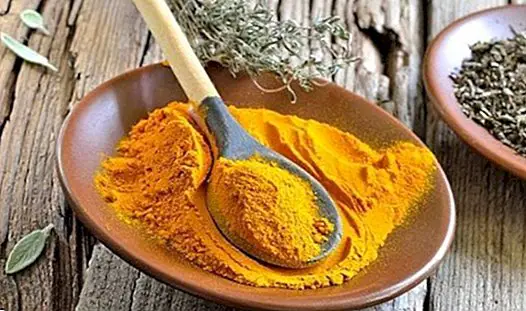What are the symptoms of a damaged or altered intestinal flora
We know how intestinal flora to all the bacteria that live in our intestine and that are part of the normal microbiota, given that most of these bacteria far from being harmful to our health provide us with many benefits. It is believed that in our body there are around 2,000 different bacterial species, of which only 100 can actually be harmful.
Among the important functions performed and carried out by the intestinal flora, we find that It is very important for the proper functioning of our immune system; more specifically, it is responsible for the specialization of the lymphoid tissue associated with the mucosa of the intestines. This translates into something very simple: the bacteria present in the intestinal flora are in charge of showing the T lymphocytes which strains are useful for the organism and which are not, which brings added advantages given that it offers the possibility that our immune system is able to recognize the invading antigens.

But its functions do not remain here, since certain types of intestinal flora possess enzymes useful for the digestion of carbohydrates, especially carbohydrates such as starch, oligosaccharides and some sugars that our body does not absorb during metabolism.
Why is it so important to take care of our intestinal flora?
If we take into account the main functions carried out by the intestinal flora, there is no doubt that their care is fundamental when it comes to being able to enjoy good health, and that our immune system can function properly and correctly.
And we just have to look at those functions to realize why it is so important to take care of it: for example, it increases the resistance to infections (protecting us from possible viral or bacterial infections), preventing the growth of bacteria guilty of disorders in transit intestinal, help in the digestion of food, and allow a better absorption of nutrients.
There are different habits that are easy to follow and useful when caring for our intestinal flora: Eat yogurt, probiotics and prebiotics They are a simple option since they are rich in microorganisms and live bacteria beneficial to our flora, so they are also recommended when it comes to strengthening our immune system. It is also very important follow a diet rich in foods high in fiber, such as fruits, vegetables, whole grains, legumes and nuts.
How to know if our intestinal flora is damaged?
There are some symptoms that tend to arise when our intestinal flora is damaged. We could say that they are signs or signals that will help us discover if our flora is bad or weakened and therefore we put ourselves to work in order to regenerate it.

The symptoms to be taken into account and which may indicate the possible existence of a damaged, altered or diminished intestinal flora are the following:
- Digestive and intestinal problems: when our intestinal flora is altered problems and common digestive symptoms arise, as for example is the case of abdominal swelling, gas and flatulence.
- Changes in the habit at the time of going to the bathroom: constipation is common, which means that it will be harder for us to go to the bathroom until the flora regenerates. However, periods of constipation can also alternate with frequent diarrhea.
- Changes in stool: Just as there are changes in our habit at the time of going to the bathroom, changes in stool may also appear. For example, it is common for stools to become very unpleasant.
- Intestinal cramps: discomfort and colic in the intestines, which cause pain in the abdominal area, usually appear more commonly.
- Increase in infections: having a damaged or altered intestinal flora tend to increase infections, since our defenses are weakened.
What to do to recover the intestinal flora?
At the time of regenerate and recover our intestinal flora it is essential to follow a varied and balanced diet. In this sense, it is possible to increase the consumption of certain useful foods for their regeneration. They are the following:
- Yogurt: rich in beneficial microorganisms is essential to take care of the intestinal flora. In addition, it provides other nutrients such as minerals, vitamins and proteins of good quality.
- Probiotics and prebiotics: they are products rich in live bacteria and lactic acid, useful to strengthen the immune system. Particularly noteworthy are the prebiotics, which help to stimulate the growth of the beneficial bacteria present in the colon.
- Foods rich in fiber: as it is the case of fruit and vegetables in general, especially the apple, pear, strawberries, kiwi and figs.
- Ginger root: it is a wonderful natural option when it comes to keeping our intestinal flora healthy, also becoming an excellent remedy to take care of our digestive system.
- Kefir: it stands out for being a useful probiotic food to regenerate the intestinal flora, so that its consumption is ideal when there is an imbalance in our intestinal flora.

As we see, it is very important to look at the symptoms that may indicate the possible existence of a reduced or spoiled intestinal flora to deal with its regeneration and protect it. There is no doubt that our health and our defenses will thank you. This article is published for informational purposes only. It can not and should not replace the consultation with a Physician. We advise you to consult your Trusted Doctor. ThemesConstipation


